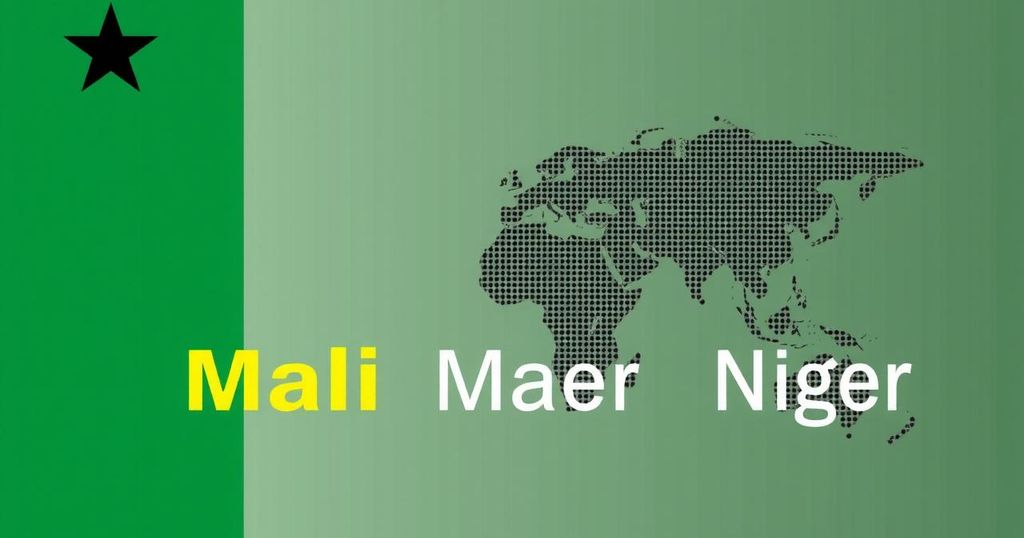West African Military Governments Introduce New Biometric Passport Amid ECOWAS Tensions
Summary
Mali, Burkina Faso, and Niger, under military rule, are set to introduce a new biometric passport, seeking to disengage from ECOWAS while enhancing their regional alliance. Led by Colonel Assimi Goïta of Mali, the announcement signifies a move toward regional sovereignty amidst ongoing struggles with militant violence and the complexities of post-coup governance. The impact of this new passport on travel within ECOWAS remains to be seen.
Three West African countries under military rule are preparing to implement a new biometric passport system as part of their initiative to disengage from the Economic Community of West African States (ECOWAS). Mali, Burkina Faso, and Niger, where military leaders seized power between 2020 and 2023, announced this decision earlier this month. In light of these political upheavals, ECOWAS had imposed sanctions on these military regimes aimed at restoring civilian governance swiftly. However, the nations have rejected this request, opting instead to reinforce their own alliance known as the Alliance of Sahel States (AES). Colonel Assimi Goïta, the head of the military junta in Mali and the interim president of AES, announced on national television, “In the near future, a new biometric passport will begin to be used to harmonize travel documents within our region.” This declaration coincided with the one-year anniversary of the formation of this regional alliance, intended to further their collaborative efforts. Previously, Burkina Faso had revealed its plans to introduce a new passport without the ECOWAS mark, raising questions about how this new document will affect citizens’ ability to travel within ECOWAS member states, where they previously enjoyed visa-free access. In July of this year, the leaders of the military governments in these three nations declared their irreconcilable break with ECOWAS, emphasizing their desire to build a self-reliant regional bloc based on African values, distancing their governance from external influences. The recent announcement comes at a time when ECOWAS has been striving to reintegrate these nations back into the organization. The regional body has warned that the implementation of this new alliance threatens to destabilize the area and exacerbate existing security challenges. All three countries established the AES in the previous year to promote military cooperation, and just a few months ago, they initiated a framework for broader collaborative security efforts. The Sahel region continues to face significant violence from extremist groups claiming allegiance to radical interpretations of Islam. Thousands have lost their lives, and millions have been displaced as a result of this ongoing conflict. Addressing the threat posed by these extremists was one of the justifications given by the military leaders for their coup actions, although they have yet to significantly curb the violence. Concurrently, these military-led nations have expelled French forces who had been assisting in counter-terrorism operations, redirecting their eyes towards potential military partnerships with Russia.
The background of this article pertains to the political landscape in West Africa, specifically focusing on the countries of Mali, Burkina Faso, and Niger, which have experienced a transition to military rule. Following a series of coups, military regimes have sought to distance themselves from ECOWAS, an economic and political bloc in West Africa that imposes sanctions aimed at reinstating civilian governance. The introduction of a new biometric passport system by these nations marks a step toward the establishment of a regional identity separate from ECOWAS. Their rejection of external influence aligns with their broader strategy to consolidate military cooperation and foster independence within the Sahel region, which has been plagued by violence from militant groups for years.
In conclusion, the implementation of a new biometric passport by Mali, Burkina Faso, and Niger highlights the growing desire of these military-led governments to establish sovereignty and reaffirm their regional alliance independent of ECOWAS. As these nations navigate the complexities of military rule and external relations, the implications for citizens’ travel rights and regional stability remain uncertain, particularly amid ongoing security challenges in the Sahel region. The trajectory of these military governments will be crucial in determining the future political landscape of West Africa and its security dynamics.
Original Source: www.bbc.com








Post Comment